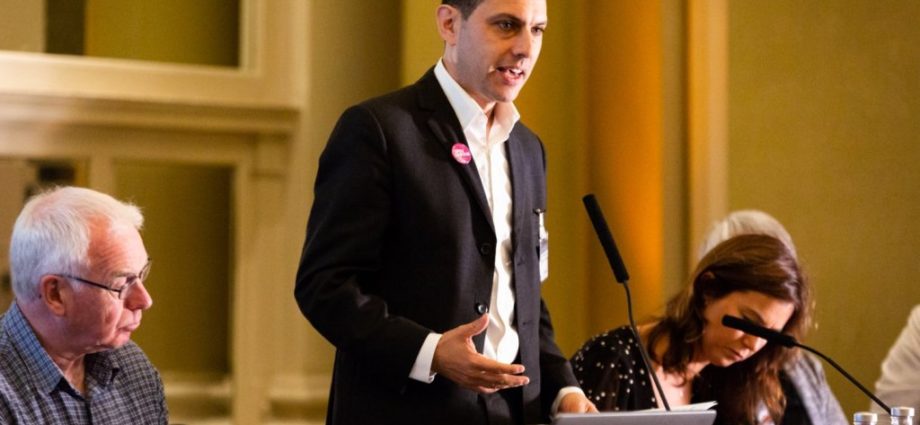
There is growing anger across the North at the Conservatives’ broken promises on their much-hyped ‘levelling up’ agenda. The recent tearing up of commitments on high-speed rail in the North, and reform of social care to the region’s detriment has added fuel to the fire, and a sense that this government treats the North with contempt.
Conservatives didn’t win the North
There is a great myth that at the last election the so-called ‘red wall’ fell and the North of England voted in Boris Johnson’s Conservatives – and so the North only has itself to blame as it watches a nakedly corrupt Conservative Westminster government dish out cash to its cronies and attack our basic democratic norms and safeguards.
In fact, at the 2019 general election, of the 7.32 million votes cast in the North, 43 percent went to Labour, 8 percent to the Lib Dems and 2 percent to the Greens, compared with 40 percent for the Conservatives and 5 percent for the Brexit Party. True, this was the best performance by the Conservatives in the North in recent history, but they didn’t ‘win the North’.
The Conservative Party has never won a general election in the North in recent history. In 2017, when Theresa May managed to form a government with the aid of the Democratic Unionist Party (DUP), the Tories polled 31 percent in the North compared to Labour’s 53 percent. In 2015, when David Cameron won a working majority, the Tories polled 31 percent in the North compared to Labour’s 43 percent.
Devolution for the North of England
So the North of England has much in common with Scotland and Wales, in that right wing Conservative governments it didn’t vote for are repeatedly foisted upon it by the electorate of the South of England. These governments act consistently against the region’s social, economic and industrial interests and in favour of the economic interests of the South of England-based elite and the City of London.
However, both Scotland and Wales have a devolved parliament/senedd elected by proportional representation from which a government that the people did vote for is formed. This devolved government is in charge of health, education, housing, roads, railways and many other vital public services.
The North of England has none of these things and, despite the valiant efforts of the Yorkshire Party and others, no strong political voice demanding them.
Hannah Mitchell Foundation
The Hannah Mitchell Foundation (HMF) is a small, independent, cross-party, democratic organisation researching and campaigning for devolution for the North of England and a progressive regionalism open to everyone who has made the North their home.
Regional history, culture and identity have always been very much a motivating force in our campaign for devolution. Nevertheless, when the HMF was originally founded ten years ago, devolution could be treated almost as a technical question about improving public services and making them more democratic and responsive to the North’s needs.
Now, since austerity, the Scottish Indyref, Brexit and Boris Johnson, things have got much more fundamental. The North of England faces simultaneous social, economic, health and climate emergencies: this winter far too many will be unable to afford to eat properly or stay warm. HMF argues that we are also facing a democratic emergency.
The traditional British unwritten rulebook of democratic good conduct has been well and truly torn up by the Johnson government, if such a thing is possible.
Democratic emergency: the need for constitutional and electoral reform
Discussion of Northern regional devolution must now be linked to the wider debate on the need to reform the United Kingdom’s failing constitution and bring in a fair voting system for the Westminster parliament.
The North needs to get involved in that debate now, because if the region does not take steps to define its own democratic rights and fight for them, its future will be determined by what happens elsewhere, including in London, Edinburgh, Cardiff and Belfast.
Against this background, HMF has organised an online public meeting on Saturday 4 December 10.30am, entitled ‘Real Levelling Up: getting a more democratic, flourishing future for the North’, featuring guest speakers Baroness Natalie Bennett, Alex Sobel MP, and Thelma Walker. It’s free to attend and is followed by HMF’s annual general meeting, at which there will be a debate on the options for Northern devolution.
HMF is free to join and will be looking to work jointly with others in 2022 to define and then promote the North’s democratic rights, to underpin the flourishing region we all know the North can be.
Please follow us on social media, subscribe to our newsletter, and/or support us with a regular donation


